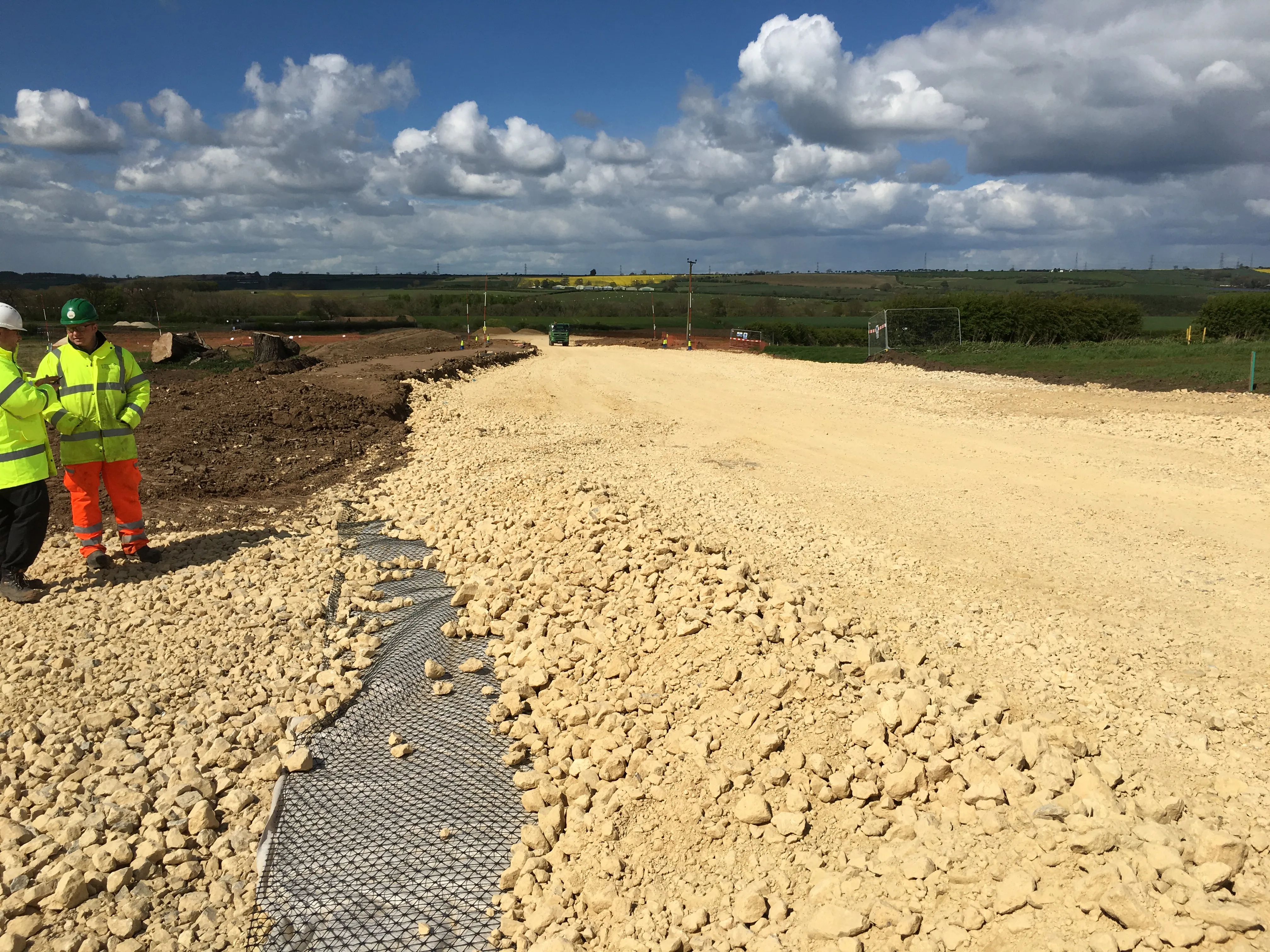Tensar’s flexible and reactive approach to optimising pavement design has delivered cost savings on a project to expand a science and technology park in England. The US$6.7 million NETPark Phase 3A Infrastructure project in county Durham will see construction of a spine road and side roads. The road will open up 10.5ha of development land at the North East Technology Park. The ambitious expansion plans will create additional space for research and development companies which need room to prototype and scale
August 3, 2017
Read time: 3 mins

The US$6.7 million NETPark Phase 3A Infrastructure project in county Durham will see construction of a spine road and side roads. The road will open up 10.5ha of development land at the North East Technology Park. The ambitious expansion plans will create additional space for research and development companies which need room to prototype and scale-up to manufacture on site.
Tensar’s Spectra Pavement Optimisation system, incorporating TriAx geogrid, has mechanically stabilised the roads’ granular layers, enabling them to be built over the site’s weak and variable ground. The system mitigates the risk of differential settlement and reduces the amount of imported material.
“The TriAx interacted with the aggregate to create a mechanically stabilised layer, which increased flexural rigidity and allowed the total pavement thickness to be reduced,” said Craig Andrews, Tensar’s highways manager.
“The granular particles partially penetrate through the geogrid apertures, which confines and restrains the stone from moving both vertically and laterally. This helps to deliver road pavements capable of carrying anticipated traffic loads.”
Tensar worked closely with
“Because ground conditions are so varied, we finalised the optimal pavement design as the underlying ground was exposed and tested,” Andrews said.
This approach meant that, rather than using a one-size-fits-all design to cope with the weakest ground, thicker pavements could be used in these areas, while thinner sections could be used over stronger ground. As a result, material use was reduced and construction was faster and more cost-effective.
“We used three mechanically stabilised layers above the very weak ground, reducing this to two layers over slightly improved areas,” said Andrews. “Where ground conditions were more favourable, we were able to design the capping layer out completely and only a single mechanically stabilised layer was needed.”
A total of 10,000m² of TriAx was laid at NETPark by Durham-based Groundwork Services, which was working on behalf of main contractor ESH Group.
Tensar manufactures subgrade stabilisation and soil reinforcement solutions, including high-performance geogrid and geotextile products used in road, rail and other infrastructure.








